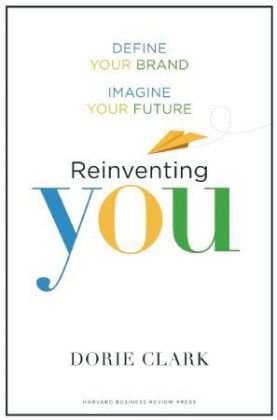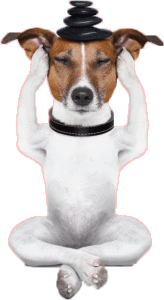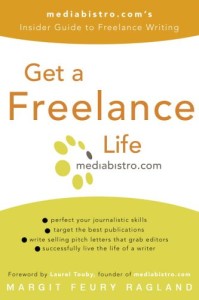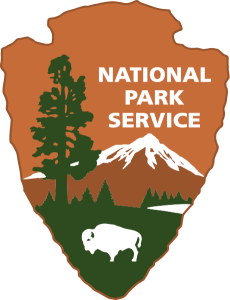 I am thinking about starting a consulting business. Consulting appeals to me because I love controlling my schedule, managing projects, and taking on work that I find interesting and fulfilling. It seems like consulting would allow me to be the historian, writer, and researcher I want to be. However, to start a consulting practice, I need to figure out what skills and expertise I possess that other people would pay for. This is the stage where I have been stuck.
How do I translate my academic experience into marketable, real-world skills?
I am thinking about starting a consulting business. Consulting appeals to me because I love controlling my schedule, managing projects, and taking on work that I find interesting and fulfilling. It seems like consulting would allow me to be the historian, writer, and researcher I want to be. However, to start a consulting practice, I need to figure out what skills and expertise I possess that other people would pay for. This is the stage where I have been stuck.
How do I translate my academic experience into marketable, real-world skills?
Reinventing You
 Last Tuesday, my writing group attended a talk given by Dorie Clark, author of [amazon_link id="1422144135" target="_blank" container="" container_class="" ]Reinventing You[/amazon_link]. The premise of her book: How can you get to where you want to go in your career?
Last Tuesday, my writing group attended a talk given by Dorie Clark, author of [amazon_link id="1422144135" target="_blank" container="" container_class="" ]Reinventing You[/amazon_link]. The premise of her book: How can you get to where you want to go in your career?
Clark contextualized her book by telling the audience about her journey from laid-off political reporter to business expert. In between these two careers, Clark worked as a political campaign spokesperson, marketer, and filmmaker. After catching a break with the Harvard Business Review, Clark used her experience and reporting skills to generate a 3-step process for personal re-invention, a process that enables people to get from point A to point B (or even point C) in their careers.
Dorie Clark’s 3-Step Process
Step 1: Discover your personal brand. You need to know how your friends and coworkers perceive you. Clark suggested either working with a career counselor or asking half a dozen friends to describe you in 3 words.
Step 2: Discover your personal narrative. You need to find the thread that connects all of your different career and personal experiences. To find this thread, Clark advised the audience to write down their “war stories,” the stories that we often tell people. These stories form the cornerstones of how we perceive the world. If you can identify the thread that connects these cornerstones, you will understand why you have chosen to pursue the jobs and experiences you have, even if they seem unrelated.
Step 3: Manifest Your Brand. Don’t tell people about your brand, live it.
From Skeptic to Book Buyer
 Although an inspiring speaker, Clark’s talk did not move me to buy her book. I have read a number of books on personal branding and I did not find her strategy for how to build a personal brand to be all that new and novel. Her strategy: be consistent with your message and promote it via social media, especially Twitter. However, the Q & A session changed my mind because the posed questions allowed Clark to discuss the contents of her book in more depth.
Although an inspiring speaker, Clark’s talk did not move me to buy her book. I have read a number of books on personal branding and I did not find her strategy for how to build a personal brand to be all that new and novel. Her strategy: be consistent with your message and promote it via social media, especially Twitter. However, the Q & A session changed my mind because the posed questions allowed Clark to discuss the contents of her book in more depth.
Clark urged the audience not to overlook and undervalue important attributes of their personality just because they can’t figure out how to connect their love of baking with their career interests. It occurred to me that my seemingly disparate interests, history, writing, marketing, organization, and technology (to name a few), all share a common theme: problem solving. (Perhaps problem solving constitutes a marketable skill set.)
Clark asserted that the economic crash of 2008 has affected the present and future job market in two profound ways:
First, potential employers no longer want to see how you conform. Instead, they want to know how potential employees (and consultants) are different and unique. They want to know about the valuable skills and special perspective you will bring to the table if they hire you.
Second, by 2020, 40% of Americans will be freelancers. People who set-up their freelance shops now are in the vanguard of this coming trend.
Clark counseled that freelancers need to mitigate risk for potential clients by creating a rock-solid brand that demonstrates a track record of reliability. Blogs present freelancers with a powerful tool for broadcasting their ideas to the world. They also demonstrate consistency if freelancers update them on a regular basis.
Imagining My Future
 I attended Clark’s talk more out of peer pressure than interest. However, I left her talk interested in her ideas and inspired to think more about what my “brand” can offer people. Appreciative, I purchased Reinventing You. I have not read it yet, but it is my next read.
I attended Clark’s talk more out of peer pressure than interest. However, I left her talk interested in her ideas and inspired to think more about what my “brand” can offer people. Appreciative, I purchased Reinventing You. I have not read it yet, but it is my next read.
Even without reading Clark’s book, her talk stimulated ideas and gave me hope that starting a consulting practice may not be a bad idea. Late last week, I sat down and listed the skills and knowledge I possess that others may be interested in making use of. It turned out to be an expansive list.
Over the next few weeks, I plan to think about how I can offer and market my various skills. I love the idea of offering my skills for hire, but I do not want to offer them haphazardly. I want to develop a clear business plan for how I would offer each skill, how each skill adds to the work I want to accomplish as a historian, and what I would charge for my services. Most of all, I want to create a plan that will enable me to expand my brand and still prioritize the project most important to me: writing my first book: America’s First Gateway: Albany, N.Y., 1615-1830.
As soon as I draft my plan of action, I will let you know.
What Do You Think?
Do you offer your historical, writing, academic or other skills for hire? If so, how are you going about it? Do you have a self-imposed guideline for the type of projects you take on? How many projects do you accept?
Are you thinking about offering your skills for hire? If so, what is your plan of action?











